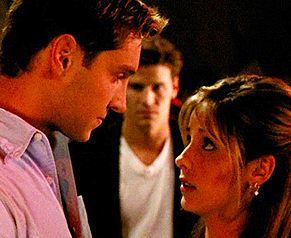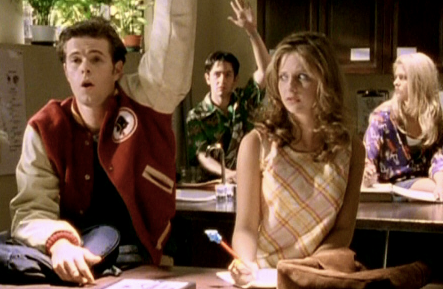on Doctor Who and a female Doctor
 Monday, June 3, 2013 at 03:31PM
Monday, June 3, 2013 at 03:31PM So, the Guardian asked me this morning to respond to this piece, which contains this extremely awful paragraph about the possibility of a female Doctor:
"This is also the time when many people – who probably don't watch the show very much – suggest that the next Doctor could be a woman. It's well established that Time Ladies exist; one has even travelled on the Tardis. Even though you can pretty much reset anything in the Whoniverse, so much of the Doctor's character, his strengths and his weaknesses are, to me, fundamentally male. He is impatient and petulant and always think he's right – massive generalisations, yes, but qualities that have been hardwired into the character for 50 years. The pairing of an ancient male Time Lord with a youngish Earth girl works for a reason and it's not a dynamic that should be messed with for the sake of it."
I wrote a response, which is partially posted here. I say 'partially' because for some reason the bit where I was *really really angry* has been totally removed from the piece. So, here's what I wrote, in all its glorious rage at women who want a female Doctor being called, essentially, a fake geek girl:
--------
So, it’s choosing a new Doctor time again. Exciting, for those of us who love the show and its brilliant “regeneration” wheeze, which means that the Doctor is always changing, and yet somehow also always the same, and that the public never have time to get tired of any single actor in the role.
Sadly, it’s also time for statements like this: “many people - who probably don’t watch the show very much - suggest that the next Doctor could be a woman”, a sentence brilliant in its patronising, patriarchy-upholding blindness.
So. To respond. Many men – who probably haven’t met very many women – can’t imagine a female Doctor.
This is despite the fact that it’s been established at least twice under current showrunner Stephen Moffatt that the Doctor could indeed be a woman. In Neil Gaiman’s superb The Doctor’s Wife, the Doctor mentions another Timelord, the Corsaire, who has regenerated as both male and female. And when David Tennant regenerated into Matt Smith, Smith’s Doctor, he felt the length of his hair, and exclaimed in surprise: “I’m a girl!” The simple fact that he considered it a possibility establishes (in ‘canon’ as we uber-fans who “probably don’t watch the show very much” like to say) that it could happen. One wouldn’t even have to stretch to do it – the character of the Doctor has “moving with the times” built into its genetic-loom – the whole point is that each regeneration gives the new showrunners a chance to reinvent the character.
Are the qualities of the character “fundamentally male”? No. For one thing, there’s no such thing as a fundamentally male personality. Women can be hard and men can be soft. Women can be combative and men can be nurturing. For goodness’ sake, this isn’t the 1850s. And anyone who thinks that women can’t have the qualities of being “impatient, petulant and always [thinking they’re] right”… well, they clearly haven’t met me.
So all ludicrous objections – from people who probably haven’t thought about the show very much – aside, who would we cast as our ideal first female Doctor?
Helen Mirren’s said she’d love to do it – and would be a fantastic choice, harking back to the magisterial alienness of William Hartnell. She’d make an imperious Timelord, travelling the universe for her own unimaginable reasons, deigning to take a companion onboard from time to time. Tilda Swinton would be another glorious Doctor – she has the quality of seeming unreadable even while conveying that much is going on beneath the surface, the perfect combination for a centuries-old being who’s seen the breadth of time and space.
Sue Perkins is a popular choice, though perhaps too much herself in the public eye to be a believable Doctor. Eve Best, if she could be tempted to return to the UK from her work on the fantastic Nurse Jackie, would be a rambunctious and joyful Doctor, believably a brilliant mind but also out for a good time, like a Jon Pertwee for our time. And I haven’t been able to get the idea of Tanya Moodie’s possible Doctor out of my head since seeing her as Hunter in Neverwhere – she’d bring a presence that is both warm and fierce, a Doctor with powerful emotions stirring beneath the surface. My personal favourite would be Olivia Williams – a very fine actor who I sense could bring things to the Doctor we’ve never seen before – she has a vulnerability combined with seriousness, she’d play the role with absolutely no bouncing around whatsoever, surely a welcome contrast to what’s gone before. There are many wonderful actresses to consider, but if I were casting the show, I’d be on the phone to Williams right now, asking her to read for it.
But then, what do I know? I may have had my first ever rejection slip at the age of 14 from Doctor Who Magazine, I may have read more than 40 Virgin New Adventures in the dark interregnum when the show was off the air, I may have risked my “literary” reputation to write a Doctor Who novel myself… but I probably don’t watch the show very much.


